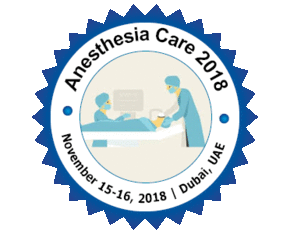
Badri Prasad Das
Banaras Hindu University, India
Title: Use of tolvaptan in neuro critical care unit: How we manage severe traumatic brain injury
Biography
Biography: Badri Prasad Das
Abstract
The recent Brain Trauma Foundation guidelines did not carry forward its earlier recommendations on osmotherapy in
severe traumatic brain injury (TBI) because of insuffi cient high quality evidence from comparative studies. HTS is no more
advantageous than mannitol in maintaining hyperosmolar state and controlling ICP, which might be due to urinary sodium
loss, which curtails its superior osmolar eff ect. We did a study to explore the impact of tolvaptan when added to HTS on
osmolar effi cacy in such patients. A single-centric, prospective, double-blind, investigator-initiated clinical comparative trial
was conducted in between June 2017-June 2018 at Trauma ICU,IMS-BHU,Varanasi, in which 76 adult patients with severeTBI
belonging to age group 15-70 years, receiving aliquots of 2.5ml/kg of 3%HTS for refractory-ICH, were randomised to receive
tolvaptan (Group A) or placebo(Group B) to achieve target ICP <22 mmHg and CPP >60mmHg. Addition of tolvaptan
increased serum sodium and osmolality signifi cantly in a sustained manner throughout the study period(p=0.03 and 0.02,
respectively), which translated into better ICP control with lesser boluses of HTS(p=0.01). Th e outcome parameters (duration
of hospital stay 22 ± 10 vs 42 ± 11 days;p=0.04) and unfavorable GOS (GOS=1 to 3) at 6 months (10/40 vs 18/36;p=0.02) and
mortality at 6 months (8/40 vs 14/36;p=0.03) were better with tolvaptan use. Here we describe how we manage severe TBI
patients in our high-volume trauma centre, with use of tolvaptan which not only curtails the eff ect of urinary sodium loss,
thereby increasing osmolar effi cacy of HTS but also leads to better ICP control in severe TBI, translating into better GOS with
mortality benefi t.

